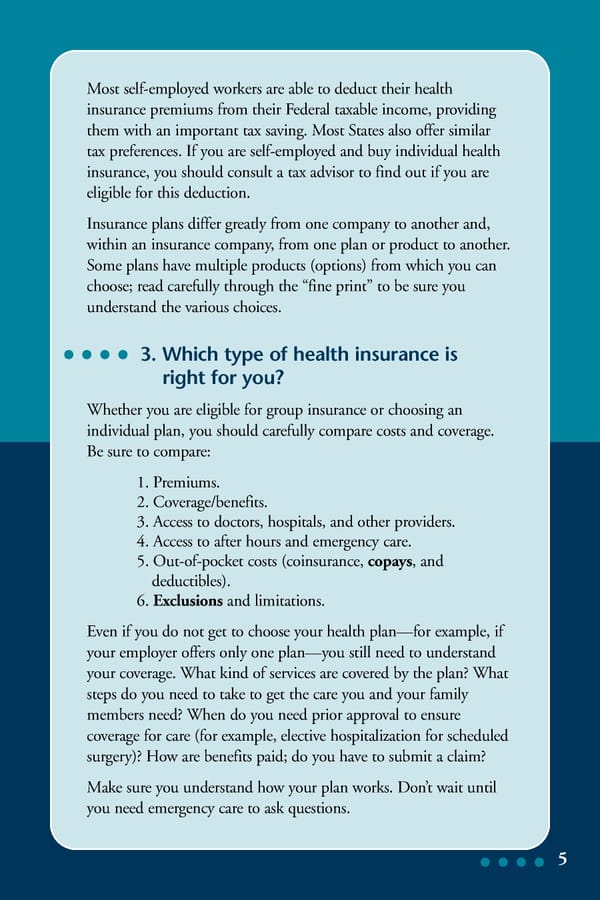Most self-employed workers are able to deduct their health insurance premiums from their Federal taxable income, providing them with an important tax saving. Most States also offer similar tax preferences. If you are self-employed and buy individual health insurance, you should consult a tax advisor to find out if you are eligible for this deduction. Insurance plans differ greatly from one company to another and, within an insurance company, from one plan or product to another. Some plans have multiple products (options) from which you can choose; read carefully through the “fine print” to be sure you understand the various choices. 3. Which type of health insurance is right for you? Whether you are eligible for group insurance or choosing an individual plan, you should carefully compare costs and coverage. Be sure to compare: 1. Premiums. 2. Coverage/benefits. 3. Access to doctors, hospitals, and other providers. 4. Access to after hours and emergency care. 5. Out-of-pocket costs (coinsurance, copays, and deductibles). 6. Exclusions and limitations. Even if you do not get to choose your health plan—for example, if your emplo yer offers only one plan—you still need to understand your coverage. What kind of services are covered by the plan? What steps do you need to take to get the care you and your family members need? When do you need prior approval to ensure coverage for care (for example, elective hospitalization for scheduled surgery)? How are benefits paid; do you have to submit a claim? Make sure you understand how your plan works. Don’t wait until you need emergency care to ask questions. 5
 Health Insurance Q&A Page 8 Page 10
Health Insurance Q&A Page 8 Page 10